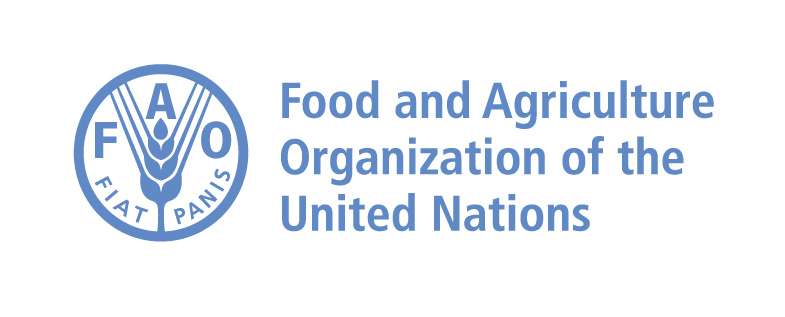
Welcome To RRI Conference
About the conference
Drought is a predominant characteristic feature of the Horn of Africa, which defines the lives and livelihoods of the pastoralist and agro-pastoralist communities that inhabit the arid and semi-arid lands (ASALs) of the region and primarily depend on natural resources for their survival. In the face of climate change and global warming phenomena, the fragility of these areas and the harsh and worsening ecological circumstances have created conditions of chronic vulnerabilities, undermined food security, disrupted livelihoods and caused widespread economic hardships and human suffering. To tackle the impact and emergencies caused by recurrent droughts, leaders in the IGAD Region recognize the need to put in place more comprehensive, longer-term actions aimed at building resilience.
The concept and objective of building resilience first captured the attention of governments, development partners, researchers and non-state actors after the 2010/2011 drought, which devastated the Horn of Africa region. IGAD Member States agreed to collectively embark on the IGAD Drought Disaster Resilience and Sustainability Initiative (IDDRSI); all the IGAD countries now have comprehensive plans and strategies to enhance resilience to drought and many development partners and other stakeholders have followed suit.
The IDDRSI Strategy observes that the economic and social development of the IGAD ASALs depends on the judicious exploitation of its natural resources, including water, pasture, land, range and non-wood forest products including gums, resins, spices, honey and artisanal minerals. The Strategy also recognizes that the sustained development of a society depends on the quality and quantity of its skilled and knowledgeable human capital. Access to and application of knowledge is thus critical in building resilience in the ASALs.
Research and innovations for resilience
Scientific capital can be built by increasing the men and women trained in science, who form the human capital upon whom the creation of new knowledge and its practical application depend. In this connection, there is need to strengthen the centers of research which are principally the universities, colleges and research institutes in the region, which provide the environment conducive for scientific research and development activities, the overall goal of which is to gain and apply knowledge, covering basic research, applied research and development. Applied research is carried out in anticipation that its results will be useful to technology; and development is concerned with transforming technological knowledge and innovations into concrete operational hardware. Applied research uses the ideas generated by basic research in making inventions which, in turn, are made practically viable through development. Thus for science to serve as a powerful factor in the welfare of the IGAD member states and respond to the practical problems of the region, e.g. in the implementation of IDDRSI, applied research must be made vigorous. It should be noted that scientific research is already helping to improve understanding of the phenomena of resilience and formulating appropriate responses. But the contribution of science to resilience remains relatively unknown, not systematized, fragmentary and incomplete.
There is much that we do not yet know about the dynamics of resilience in drylands systems, particularly approaches that combine the social and ecological components. Given the peculiar constraints of the drylands in the IGAD region, within a framework of livelihood options, there is need to prioritize natural resources and other areas of the IDDRSI Strategy as our principal research base and recognize points of entry for developmental initiatives to be able to determine the region’s research needs. A series of projects based on critical targets for research will need to be identified and used to attract the involvement of researchers in the region on themes that address livelihood advancement, resilience building and sustainable development.
It is against this background that this conference has been designed. Interrogating the state of the region’s research on resilience is of paramount importance and universities and research institutions are undeniably among the institutions expected to contribute to the actualization and application of research results for growth and development.
RRI Specific objectives
-
Share knowledge, the results of research in the continent and in the sub-region, and lessons learned on the resilience and the challenges for a coordinated implementation of relevant and sustainable interventions.
-
Strengthen dialogue and research partnerships between institutions specializing in ASALs and their problems
-
Exchange around best practices from resilience projects that have shown satisfactory results.
-
Establish the theoretical and empirical nexus between resilient communities and development prospects;
-
Identify and discuss best practices and experiences in building resilience in Africa and beyond with a view to learning from them in future efforts;
-
Propose the possible solutions to the identified major problems and challenges that resilience programmes and projects are confronted with;
-
Propose elements of what could constitute conducive environments for the emergence of effective, financially viable and competitive research on resilience;
-
Propose concrete policy recommendations on the enhancement of national and regional capacities to address the challenges of building resilience and ending drought emergencies on the continent.
- Deadline for submission of the abstracts/posters: 30th June 2015
- Selection process: 1st-10th July 2015
- Notification of the selected abstracts/posters: 15th July 2015
- Provisional program publication: 30st September 2015
- Submission of full paper: 15th October 2015
- Conference: 26-28th October 2015
Download here the final agenda of the RRI 2015 Conference.
 |
1- Role of scientific research in building resilience 2- Integrating resilience thinking
|
 |
1- Disaster and risk 2- Response systems |
 |
1- Natural resources (water, pasture and land) 2- Livelihood (livestock, agriculture, fisheries) |
 |
1- Role of governance 2- Peace and security 3- Gender |
Latest
- Final Agenda of the Conference RRI is available here.
- Consult here the presentation note in French and in English.
- Call for papers / Appel à contributions and in Arabic.
Organized by:
The Ministry of Higher Education & Research of Djibouti
In partnership with:

![]()

![]()

![]()















